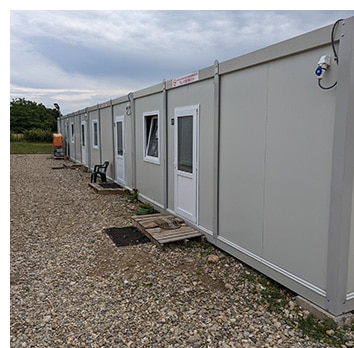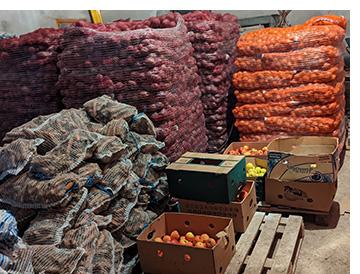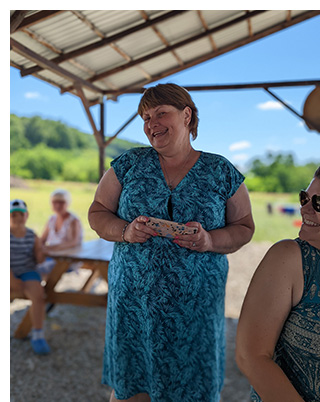By Laura McKillip Wood
When Russia attacked Ukraine in late February, IDES (International Disaster Emergency Service) sprang into action. IDES, which is accustomed to operating under challenging circumstances, has partnered with 15 organization to provide relief to Ukraine and 11 surrounding countries.
The response by IDES has already exceeded $1 million, and the ministry anticipates a compounding of that aid effort.

Thus far, IDES’ actions have included providing seven vehicles to distribute food and supplies and rescue people in occupied areas, five emergency refugee shelters made from shipping containers, and five shipping containers with GAP (God Always Provides) packaged, nutritious meals that consist of rice, soy, dehydrated vegetables, and vitamin packets. The ministry also has provided food at the border of Romania and Ukraine—up to 1,000 meals a daily for more than a month.
WHAT IS IDES?
In 1970, after seeing news reports about a cyclone that hit Bangladesh, Milton and Janet Bates started IDES as a means of uniting Christian churches and churches of Christ for providing aid after major disasters. Since then, IDES has partnered with churches and organizations to plan for disasters before they happen and provide relief after they do.
“Networking, connecting, communicating, preparing for disasters, and moving people and resources is our forte,” explains Randy Jones, international aid director. Most churches and nonprofits do not do disaster relief on a regular basis, so they are not equipped to handle major emergencies. IDES helps them plan for such events.
IDES began meeting with Ukrainian organizations to plan a response to a potential Russian attack before the war started. Still, no one anticipated the war would last this long nor that it would be so fierce and destructive. When Russia began bombing, IDES shifted from planning to implementing plans through their partnerships with churches and organizations in Ukraine and around the world.

THE ATMOSPHERE IN UKRAINE
Jones recently visited western Ukraine with David Stine, executive director of IDES. That part of Ukraine has been less directly affected by attacks but is where many displaced people have settled; it also is where some of the organizations IDES partners with have focused their efforts.
“Everyone is still doing their day-to-day things [there],” Jones says. “People act normal, but there is an air of seriousness as they try to carry on with their lives.”
Jones says air raids there can last for several hours.
“We got down in the bunker, and I was looking at the ceiling and thinking, What happens if something hits us? What will fall on us?” Ukrainians go through this every day. Even though it’s become “normal,” it still creates anxiety and stress, which takes a toll on them mentally and physically, he said. It also has doubled the population of the western part of the country as people have fled there.
“Everyone from the east is coming to the west,” Jones says. “They can get a place to live, food, supplies, but everything is difficult.” The stress on people is enormous as they deal with so much change and the trauma of what is happening in their country.

GOD PROVIDES
Despite the war’s destruction, IDES has seen God work in unexpected ways.
In 2020, IDES worked with an organization to drill a well in Mariupol on the grounds of a church in an area where people lacked clean water. After the well was built, it was discovered the water was too salty because it was too close to the sea. Funds to filter the water were not available, and the well was abandoned.
In this war, Mariupol has been one of the hardest hit areas; pipelines and water purification plants were destroyed. People who were unable to evacuate were left without any water; they were so desperate, they began melting snow to drink. It was decided to unseal the well, and now people are using water from it. Although salty, the water is usable. This well has saved hundreds of lives.
IDES hopes to sponsor many more such valuable projects to support the people of Ukraine and the surrounding areas.
To learn more about the work of IDES, visit their website.
Laura McKillip Wood, former missionary to Ukraine, lives in Papillion, Nebraska, and writes about missions for Christian Standard.


0 Comments